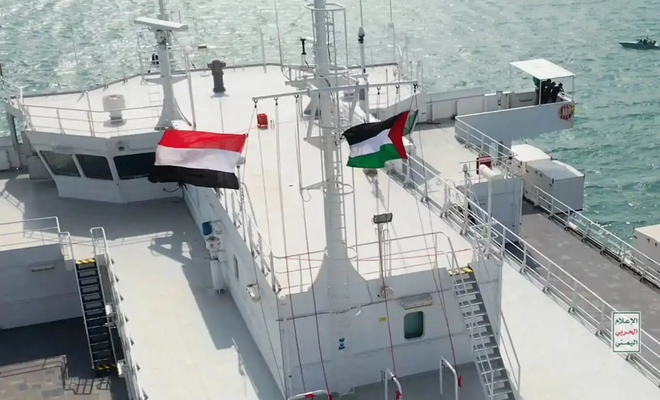Maersk's Red Sea alert: Challenges ahead for container shipping industry
Danish shipping giant Maersk triggered a tremor in the industry today, sending shockwaves through investor optimism with a stark warning.

 Google News'te Doğruhaber'e abone olun.
Google News'te Doğruhaber'e abone olun. The company anticipates a brutal year ahead, citing an oversupply of container ships that will significantly dent profits and downplaying the impact of the ongoing Red Sea disruptions that had previously boosted freight rates. This grim outlook sent Maersk's shares plummeting 14%, dragging down competitors like Hapag-Lloyd in its wake.
The announcement stands in stark contrast to the recent bullish sentiment surrounding the container shipping sector. The re-routing of vessels due to attacks on shipping by Iranian-backed Houthi rebels in the Red Sea, a crucial trade route, had led to a surge in freight rates, fueling investor optimism. Many, including analysts, anticipated that the longer journey times and higher freight rates would outweigh the negative impact of an influx of new container ships entering the market.
However, Maersk CEO Vincent Clerc doused those expectations with a sobering dose of reality. During a press conference in Copenhagen, he downplayed the significance of the Red Sea disruption, stating that its impact wouldn't be comparable to the pandemic-induced bottlenecks that had supercharged the industry's profits in 2022. Instead, Maersk's primary concern lies in the looming specter of oversupply.
The company expects a "significant oversupply challenge" in container shipping to fully materialize in 2024, with its effects rippling through 2025 and potentially extending into 2026. This predicament stems from a wave of new ship orders placed during the boom period of 2022, creating a situation where supply significantly outstrips demand.
This grim forecast translated into a significantly downgraded profit outlook for Maersk. The company now expects underlying earnings before interest, tax, depreciation and amortization (EBITDA) to fall within the range of $1 billion to $6 billion for 2024, a stark contrast to the $9.6 billion achieved last year. Analyst predictions, previously optimistic at an average of $6.6 billion, now seem overly rosy in light of Maersk's revised guidance.
The company's financial performance in the fourth quarter further underscored the challenging times ahead. Maersk's Q4 EBITDA of $839 million fell significantly short of analyst expectations ($1.13 billion) and marked a steep decline compared to the $6.54 billion reported a year earlier. Analyst Mikkel Emil Jensen of Sydbank described the financial report as "weak" and suggested that the company's guidance implies a potential net loss for 2024.
Adding to the industry's woes, Maersk announced the suspension of its share buyback program, citing the need to weather the upcoming storm. The company stated that they would reassess the decision once market conditions in the ocean container shipping sector stabilize.
The ripple effects of Maersk's announcement were immediately felt across the industry. Shares of competitor Hapag-Lloyd plunged 8%, reflecting the widespread concerns triggered by Maersk's downbeat outlook.
Maersk also acknowledged the lingering uncertainty surrounding the Red Sea disruption, with its duration and impact factored into their wide EBITDA guidance range. This highlights the additional layer of complexity facing the industry, as geopolitical tensions continue to cloud the future of this crucial trade route.
Maersk's announcement marks a significant turning point for the container shipping industry. The once-optimistic outlook has been replaced by concerns about oversupply and dwindling profits. While the full impact of these developments remains to be seen, one thing is clear: the smooth sailing days for the shipping industry appear to be over, at least for the foreseeable future. (ILKHA)



















































